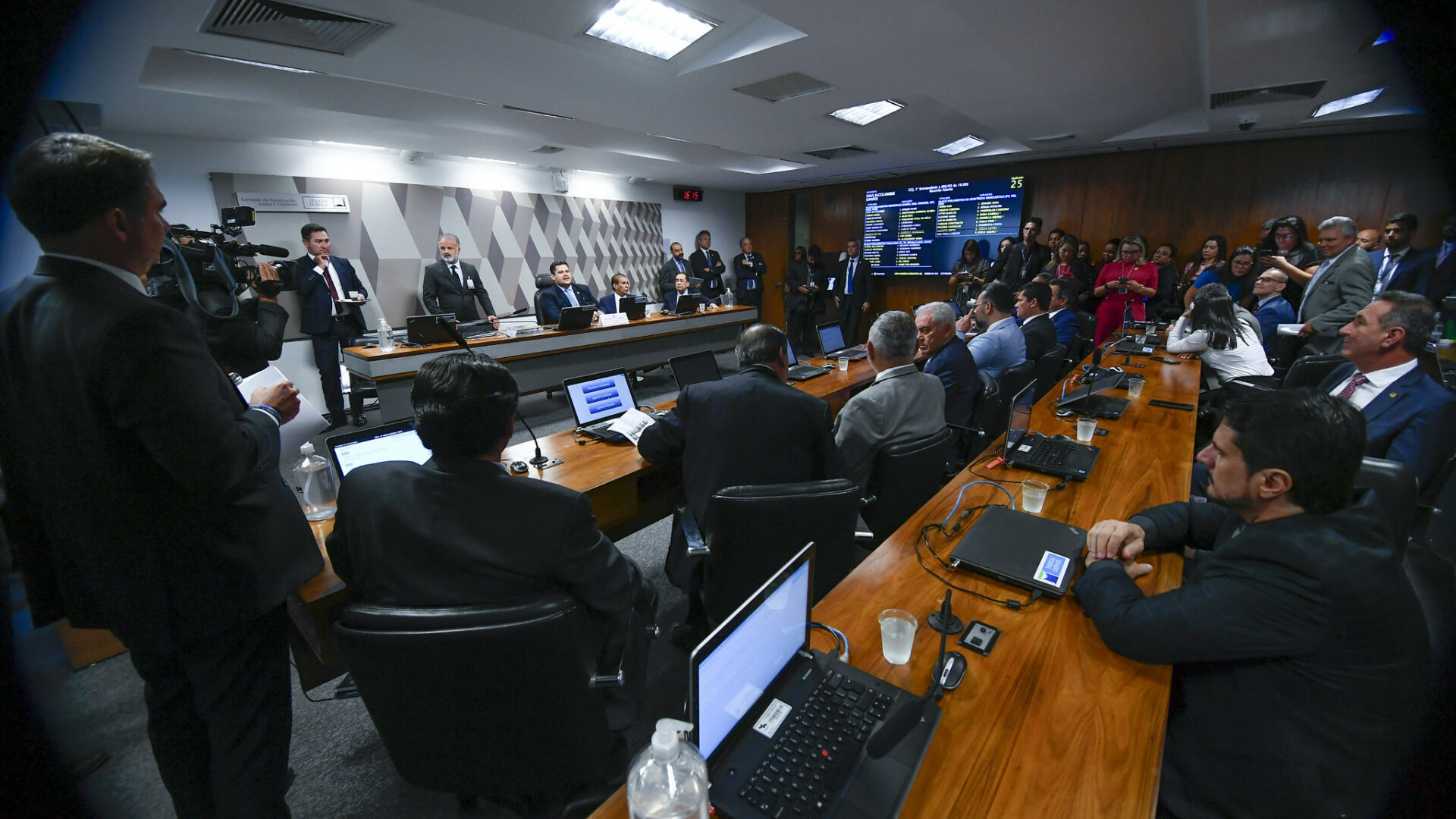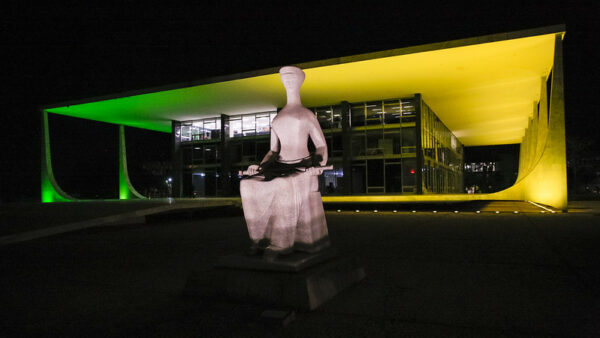The Senate on Wednesday formally appointed the members of 13 of its permanent committees and elected their chairpersons, kicking off legislative work for the next two years. Former President Jair Bolsonaro’s Liberal Party will not lead a single committee in the upper house.
Most bills are debated and voted on in committees before being brought to the floor for a vote. Committees also hold public hearings, some of which are not necessarily on bills.
Formally, party leaders assign members to the committees on a proportional basis: parties with larger benches get more seats. Then the members of each committee vote in secret to elect a lawmaker to chair the committee for two years. In practice, however, committee leaderships are negotiated in advance and chairpersons are elected by acclamation at the beginning of the committee’s first meeting.
Such was the case on Wednesday with Senator Davi Alcolumbre, who was re-elected as chairman of the Constitution and Justice Committee (CCJ), the most powerful committee in the Senate. The CCJ must approve all bills before they can go to the floor for a vote, and it holds confirmation hearings for Supreme Court nominees.
Senator Renan Calheiros, a key ally of President Luiz Inácio Lula da Silva, was elected to head the Foreign Relations Committee, which holds confirmation hearings for people assigned to lead Brazil’s embassies abroad.
Senator Vanderlan Cardoso was elected to head the Economic Affairs Committee, a key body as the Lula administration prepares to present proposals on tax reform and a new fiscal framework this year.
Meanwhile, the House has not yet scheduled similar sessions to set up its own committees. Congressman Kim Kataguiri told The Brazilian Report that this has hindered the legislative process. “Most of the legislative work takes place in committees, which means that the work of Congress is paralyzed,” he said. “Dozens of reports on bills I’ve authored are ready to be voted on, but have been stalled because committees have not yet been formed.”
Congressman Ricardo Barros, who served as the Bolsonaro administration’s chief whip, said that defining the committees is simply a matter of reaching agreements between the parties. “Ideally, everyone should be comfortable [with the assignments], even if it takes time”.
While Rodrigo Pacheco was re-elected Senate president in a competitive 49-32 vote, with clear winners and losers, House Speaker Arthur Lira obtained a record-breaking 464 out of 513 votes, meaning there are many more stakeholders to be assigned a piece of the political pie in the lower house.
Among the Senate’s 14 official standing committees, the Ethics Committee, which deals with matters related to the conduct of lawmakers, is not included. The committee’s last meeting was held in 2019, despite Senator Chico Rodrigues being the target of a Federal Police investigation in 2020.


 Search
Search










































